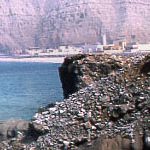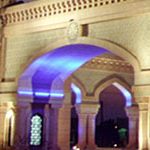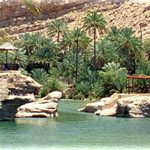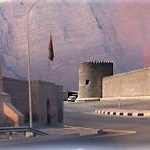As Oman celebrates its 45th Renaissance Day today His Majesty Sultan Qaboos bin Said is being hailed as an international peacemaker for his role in the recent nuclear deal between Iran and the West.
In the years since the Blessed Renaissance, Oman has established itself as a neutral, mediating nation in the Middle East for which it has received much appreciation and praise. His Majesty the Sultan came to power in 1970 with a foreign policy goal of having good relations with all of Oman’s neighbours and maintaining a neutral approach in other countries’ affairs.
Following the Camp David Accords signed in 1978 between Egypt and Israel, Oman was one of just three Arab states that didn’t cut ties with Egypt, and during the Iran-Iraq War it maintained diplomatic relations with both sides.
Now Oman’s neutral position has proven to be valuable yet again, thanks to its ability to bring the US and Iran to the negotiating table for the recently agreed nuclear framework agreement.
US Secretary of State John Kerry spoke highly of the role Oman had in the talks. In Lausanne, Switzerland on April 2 he said Oman “not only hosted a number of important meetings, but also played a critical role in getting these talks off the ground in the first place.”
In an article in International Policy Digest, Shohini Gupta, from the Gulf Institute, described Oman’s role as “instrumental.”
Oman had the trust of both the US and Iran since it had helped mediate for them before, such as in September 2011 when it facilitated the return of three American hikers who had been jailed in Iran on espionage charges.
Following this success, His Majesty offered Oman as a place for secret talks between the Americans and Iranians.
“Oman’s unique neutral position enabled HM to mediate between the US and Iran, the motivations for which mainly regard regional security…Oman was instrumental in the easing of relations between the US and Iran, and was therefore incredibly important to the success of the deal… Oman has proven that it has greater credibility in working cooperatively with the United States to further mutual policy goals in a productive manner,” Gupta wrote.
Speaking in Vienna on July 14, the day the historic agreement was signed, Kerry included Oman among the countries he thanked for hosting the talks. Talks were held in Muscat in 2013 and 2014. He also thanked His Majesty for the role he played.
“And I am particularly grateful – we are particularly grateful, all of us, to the Sultan of Oman, for his very personal engagement and support for the possibility of an agreement. He and his government were there to help every step of the way,” Kerry said.
On July 17 Vice President Joe Biden spoke with His Majesty to express his and President Obama’s gratitude for the Sultan’s support of the nuclear negotiations with Iran that resulted in the Joint Comprehensive Plan of Action.
The vice-president also thanked HM for Oman’s role in helping to advance a political settlement in Yemen. Both leaders pledged continued close cooperation between the United States and Oman to advance regional peace and stability.
That same day His Majesty Sultan Qaboos bin Said spoke with Iranian President Hassan Rouhani, who appreciated Oman’s constructive role aimed at resolving regional crises and said Oman and Iran can continue to work together to end ongoing conflicts.
Rouhani even mentioned the call on his Twitter feed: “In call w/ Sultan Qaboos– who welcomed #IranDeal & wished blessed #Eid– thanked Oman for const role& emphasized coop to end regional crisis.”
Minister Responsible for Foreign Affairs Yousuf bin Alawi, spoke about the agreement and Oman’s role in an interview on July 14 on Oman TV.
“The entire process from the first phase to the end was centred on one foundation, which was the Sultanate’s ability, [with] its distinguished relations with all parties…to establish trust between the parties. Without trust, it wouldn’t have been possible to reach this agreement. The role of the Sultanate was, at the top levels, to build trust between the leaderships of these countries and Iran,” bin Alawi said..
Here in Muscat ambassadors from countries involved in the talks praised Oman’s role, too. Iranian Ambassador Ali Akbar Sibeveih described Oman’s role bringing Iran and the P5+1 to the negotiating table was “crucial.”
“The fact that these negotiations have come to fruition after so many years is because of the presence of His Majesty who has always been seeking peace, justice and truth,” said Sibeveih.
France’s ambassador to Oman, Roland Dubertrand, also had high praise for Oman. “The French authorities and the French government want to pay tribute to the role of Oman for reaching the very positive agreement concluded between the P5+1 and Iran today,” he said on July 14 at his country’s national day celebrations, which coincided with the historic nuclear agreement.
In the past few years Oman has become a key player in region, helping bridge divides between Iran and the west. This is important to France, which a main participant in the nuclear talks with Iran. Oman also has a valuable job to play regarding Yemen, the ambassador explained.
“Oman has a special role for holding mediation for rapprochement for the countries having problems,” said Dubertrand.
Oman’s unique position and foreign policy is valued regionally and internationally, and has been one of the strengths of the Blessed Renaissance.






